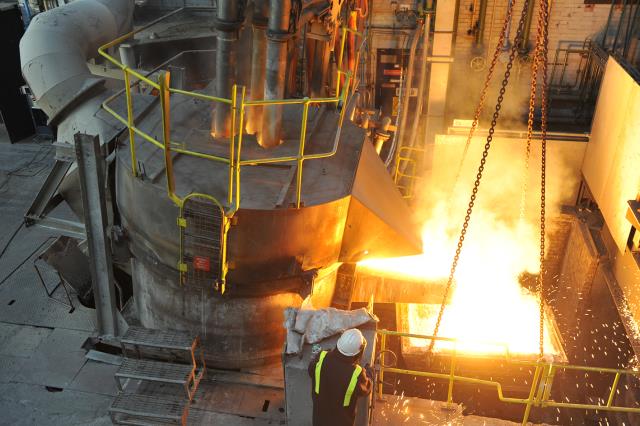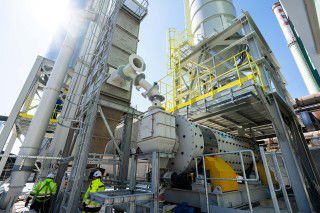The Materials Processing Institute (MPI) is leading a major GBP6.5m (US$7.83m) project to develop the world’s first zero emission cement on an industrial scale. The Cement 2 Zero project will focus on the technical and commercial aspects of this breakthrough development, which will bolster green steelmaking, while eliminating the carbon emissions associated with the manufacture of clinker in cement kilns.
The project aims to create cement clinker using electric arc furnaces (EAF), which produce steel from recycled scrap metal and lime (EAF flux). The aim being to use the recovered cementitious matrix from recycled concrete as the EAF flux instead of lime.
Led by the MPI, the two-year government-funded project will be conducted in partnership with the University of Cambridge, Tarmac, Atkins, Cardiff-based steel firm Celsa Manufacturing UK, Balfour Beatty, Livingston-based Brewster Brothers Ltd, which specialises in construction, demolition, and waste recycling, and Day Group, a leading supplier of construction materials.
 The steel industry could help the cement sector forge the first net zero cement
The steel industry could help the cement sector forge the first net zero cement
Dr Cyrille Dunant of the University of Cambridge noticed that the chemistry of recovered cement paste made it suitable for use as flux in the EAF process. As the high temperature reached by EAFs are suitable for the reclinkering of the paste, he had the idea that cement could be recycled under these conditions avoiding emissions both from the decarbonation of limestone for cement making and the production of the lime flux normally used in the EAF.
Initial tests conducted by the MPI found recovered cement can function as an effective EAF flux. As such the University of Cambridge researchers have invented a process that converts construction and demolition waste into recycled cement using an EAF which is used to recycle scrap steel. This project was conducted as part of an Engineering and Physical Sciences Research Council (EPSRC)-funded project, awarded to research zero emissions cement from old concrete paste.
The Teesside-based Institute will use its expertise in operating its own EAF as part of the project. The project will also develop the UK’s first prototype crusher for recovering cement paste from construction demolition waste, and the creation of a prototype EAF slag cooling system to transform steel slag into cement clinker.
Chris McDonald, CEO of the MPI, said: “We are delighted to be leading a project that has the potential to make a major contribution to achieving a zero-carbon society, secure and increase jobs in the UK cement and steel sectors and challenge conventional production processes, creating high-value materials from demolition waste.”
Dr Philippa Horton, Cambridge Electric Cement/University of Cambridge, added: “If Cambridge Electric Cement lives up to the promise it has shown in early laboratory trials, it could be a turning point in the journey to a zero-emissions society. We are delighted to collaborate with companies across the sector to expand the project from the laboratory, and into the wider supply chain.”
